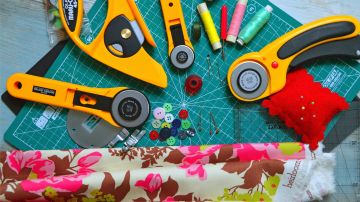I always thought side hustles are great. But if you really want to start making money from home, it’s all about starting a business. And the last few years this is a no brainer, right? You cut the costs of commuting and taking care of costly premises, for one. But that doesn’t mean that it’s guaranteed to be cheap. You need to work to eliminate those costs that shouldn’t be there. Keep reading for the essential steps of running a frugal home business.
Don’t go wild kitting out your office area
You’ll likely have heard how important it is to really set up an office area for your home business. It helps you create boundaries between the home and the office. These are important for a work-life balance. But you don’t have to spend tons of money buying an office chair, a desk and all the rest. Instead, you should consider looking second-hand. If you would prefer things to look new or fit a different style, then why not learn how to upcycle furniture instead? It’s a lot cheaper than buying loads of new furniture.
Don’t let your bills run wild on you
Being on top of your bills is a tip that can go for just about anyone. But for home businesses, it matters even more. After all, you’ll likely be using a computer, printer and scanner a lot more often, right? And how about keeping all those invoices at bay? Do you know everything you need to know about tax deductions and book keeping? If not, it will definitely be wise - and financialy secure- to invest on an accountancy package and let professionals handle the numbers.
Don’t pay when you can get free alternatives
There are a lot of tools you might want to use to make sure you’re running the business well. Project planning software. Accounting software. Website building software. Just looking at those options, you can already feel the weight on your wallet. But with a bit of investigative smarts, it’s easy to significantly reduce that weight. No matter what kind of software you’re looking at, there are always free open source alternatives you can use. For instance, instead of paying for a hefty Microsoft Office package, you might want to use Google Docs.
Keep it electronic
The fewer resources you can needlessly spend, the better. Just because you’re a business doesn’t mean you have to start going ahead and piling on the paper. For bookkeeping, it’s a good idea to use your printer. Otherwise, consider keeping your business data firmly digital and paperless. An external hard drive or the use of Cloud software can help you keep it secure and backed up, as well. Similarly, try to do more of your correspondence online. From sending invoices to paying bills. If you do it online, then you’re saving the cost of paper and postage.
The more you save on non-essential costs, the more of your investment money can go into what really matters. Materials, advertising and the like. Cutting the costs mentioned above will make it a lot easier for your business to start turning a profit. It’ll also help you remain a lot more money efficient in future.

















